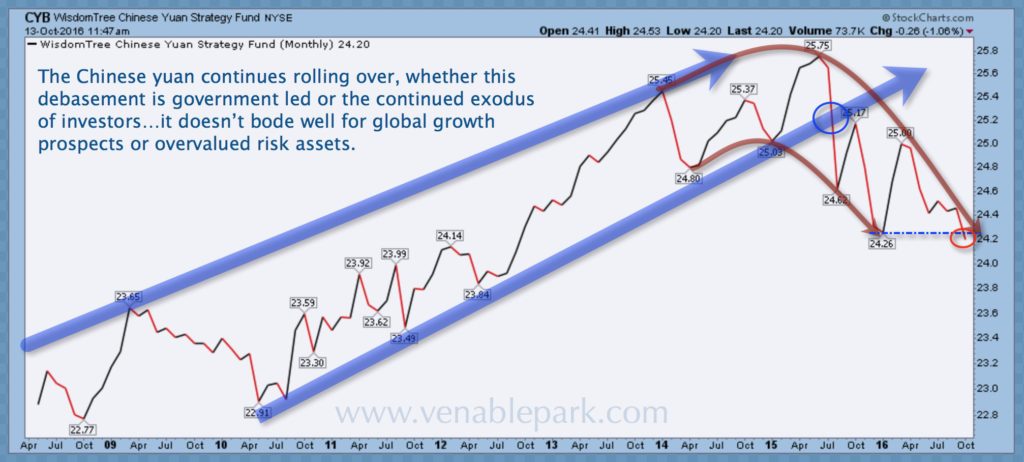A weaker currency generally makes for cheaper exports, so one might assume that the falling Yuan over the last year would be good for Chinese sales. But that would be wrong. In September Chinese exports contracted 10% year over year, even as the Yuan fell almost 8% in trade-weighted terms. This chart of the CYB since 2008, shows that the Yuan has been weakening (along with global sales and corporate earnings) since 2014.

Of course this is not just China-specific. Competing exporters like South Korea and Taiwan have reported disappointing numbers as well. This is about a broad global downturn in consumption and investment. See: China Trade: another weak signal for global economy
And the slump is unlikely to be a short or shallow. After 20 years of reckless credit pumping, the world is now working through an epic payback/write-down/write-off phase that is likely to be secular (more than one business cycle) in duration.
Enligtened people will understand the reasons we have earned this period and adapt their employment, investment and business plans to prosper in the new climate. Waiting for the good old throw-away days of endless spending, mal-investment and under-saving to return soon, is a bad plan.
Neil Shearing, chief emerging markets economist at Capital Economics, discussed the implications for emerging markets and by extension commodity producers on Bloomberg. Here is a direct video link.


